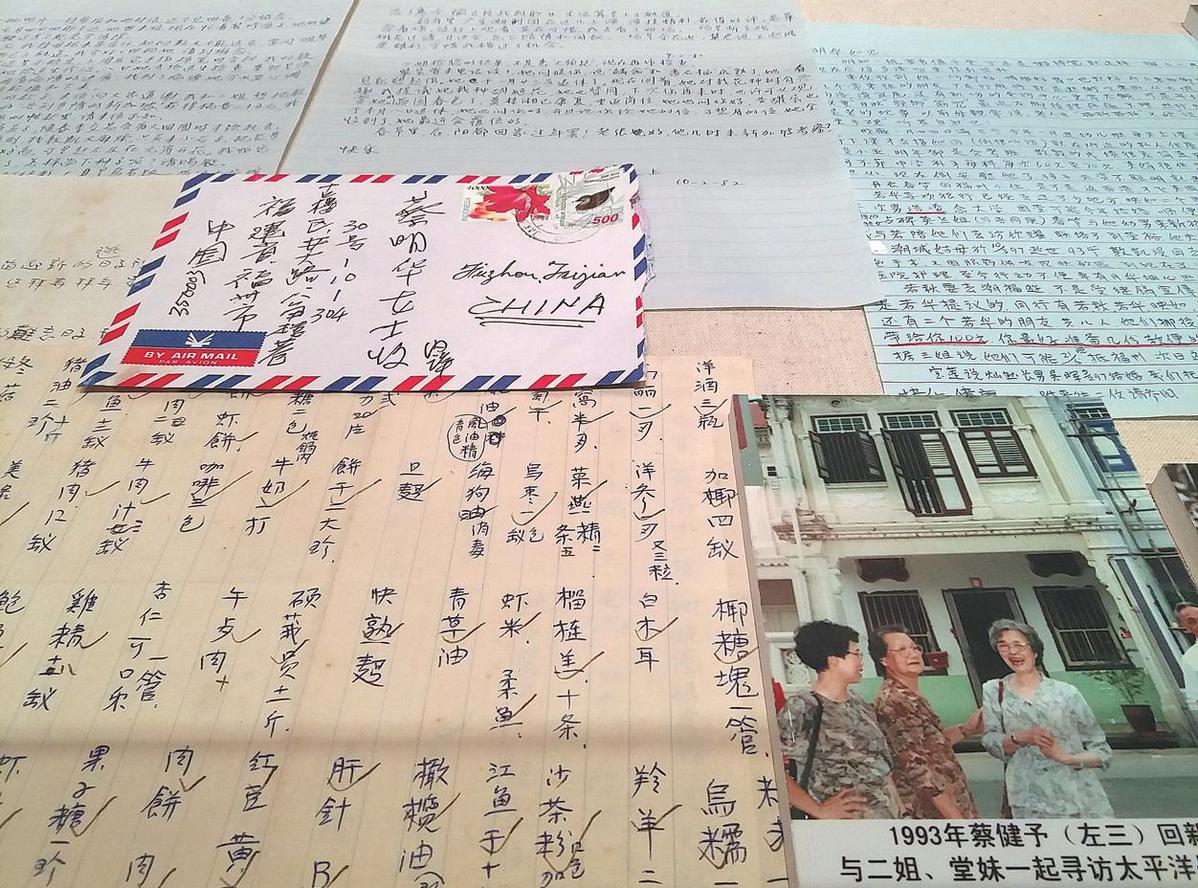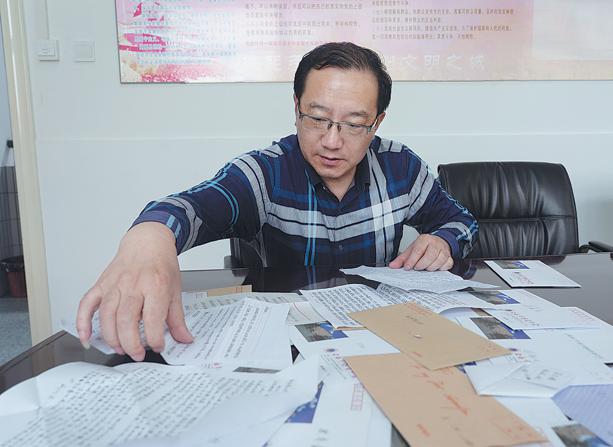
From the People's Daily app.
And this is Story in the Story.
Writing letters seems an old-fashioned way of communicating in today's digital world, but in China, efforts are being made to revive the waning practice.
With the widespread use of instant messaging, communicating by letter has fallen out of fashion.
According to a report released by the Museum of Family Letters at Renmin University of China in Beijing in 2015, only 7 percent of 1,220 respondents from more than 20 provinces, including Liaoning, Shandong and Jiangsu, said they still wrote physical letters to family members.
Some 70 percent of the interviewees did not keep any old family letters, with 32 percent discarding them when their families moved house. Some 26 percent were not in the habit of saving family letters, and 17 percent considered handwritten letters had "little value."
The museum has collected more than 1,000 handwritten letters donated by people worldwide. Most are from the public, but some have been written by well-known figures, including Chen Duxiu, one of the founders of the Communist Party of China.
Today's Story in the Story looks at efforts being made around China to encourage people to write letters rather than relying on electronic devices.

Letters are displayed at the Museum of Family Letters at Renmin University of China in Beijing. The museum has collected more than 1,000 handwritten letters donated by people worldwide. (Photo: China Daily)
At Fu Lei Middle School in Shanghai, writing letters has been promoted for 10 years.
Named after the influential translator Fu Lei (1908-66), the school is located in Zhoupu town in the Pudong New Area. Fu was born in the town.
It holds classes relating to the translator's life, in which students read from his book Fu Lei's Family Letters, published in 1981, which features letters Fu and his wife wrote to their eldest son, Fu Cong.
Students are also taught to write to their parents, who send letters in reply.
Fu Guoqing, the school's headmaster, said, "The classes enlighten young minds about family relationships, and help to build strong, healthy families with efficient ways of communication."
Huang Xinhai, 19, from Hunan province, said she hardly writes anything by hand now.
"There is little room for handwriting in modern life, because communication is usually done by computer and mobile phone to reach others and to edit documents quickly," Huang said.
"Modern technology with fast speeds and clarity in communication is more efficient than traditional handwriting."

Fu Guoqing, headmaster of Fu Lei Middle School in Shanghai, reads letters from the students. (Photo: China Daily)
Zhang Ding, deputy curator of the Museum of Family Letters, regards family letters with content relating to social affairs, astronomy, geography, politics and economics as valuable educational and historical material for the younger generation to embrace tradition and the key values of their ancestors.
He said educating children about letter writing involves far more than merely putting words on paper, as when they write, they learn to express themselves and to communicate with others.
"It's a skill that affects children's cognitive development. When they write, they build hand-eye coordination and practice fine motor skills," Zhang added.
Efforts are being made in more areas of society to revive the tradition of writing letters, in an attempt to share thoughts, love and gratitude with family members.
Last year, civil engineering students at Changsha University in Hunan province wrote letters to their parents as part of an activity to encourage the practice.
Li Yang, a student at the university, said: "We study in a city far from home and parents, so we focus more on ourselves. I'm thankful for this activity in which I can show gratitude to my parents."
Cui Lijuan, a psychology professor at East China Normal University in Shanghai, said the revival of letter writing has seen it take precedence over postcards and greetings cards.
"Physiologically, the rapid development of the neural system in adolescence also results in emotional changes. Teenagers want both to rely on their parents and to break away from them, as they need more freedom."
As a result, Cui said writing a letter can help "everyone to calm down and think things over", as it is easy to voice negative views when feelings are running high.
"These are the core reasons to revive letter writing, and there is no need to fixate on just one method of communication," she said.
But Cui said face-to-face communication is effective in most situations, because it can convey a person's tone, facial expression and eye contact, which instant messaging or letters cannot.
"So try to find the best way of communicating in different situations," she added.
(Produced by Nancy Yan Xu, Brian Lowe, Lance Crayon and Chelle Wenqian Zeng. Music by: bensound.com. Text from China Daily.)


